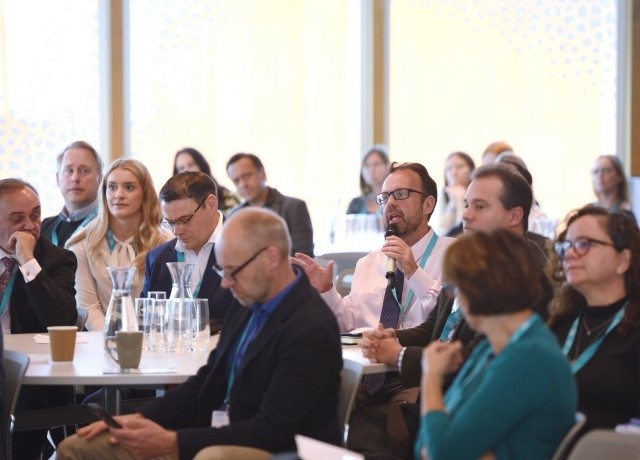
Programme Committee
Our Programme Committee comprises some of the most influential and important names in healthy urban design and planning, public health, and planetary health. They span the academic and research fields, policy and strategy, and practice and delivery.
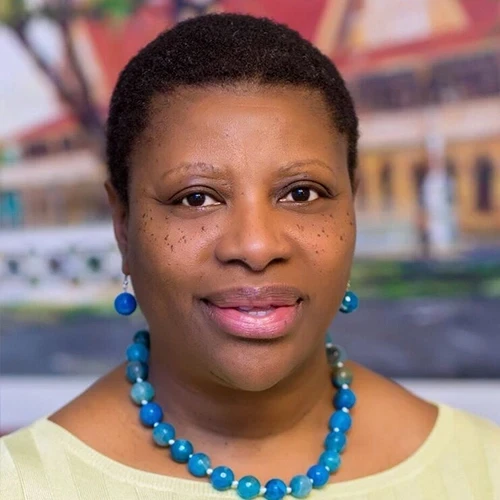
Yonette F. Thomas PhD
Founder and president, UrbanHealth360, USA
Dr. Yonette Felicity Thomas is the founder and president of UrbanHealth360, an organization of multidisciplinary thinkers centered on a people-oriented, community-focused approach to urban health. Dr. Thomas is a globally acknowledged thought leader, urban health champion, and an advocate for valuing the health of women and girls as an economic imperative. A social epidemiologist/medical sociologist by training, she has served as the chief of Epidemiology at the National Institute on Drug Abuse in the National Institutes of Health, held academic positions at University of Miami Miller School of Medicine and Howard University, and as a vice president for research. She founded Borjoner International and Strategic Transitions to influence the progress, health, and wellbeing of individuals and communities across the world. As a founding board member of Women’s Economic Imperative (WEI), she leads the organization’s focus on the health of women and girls as an economic value. Her work as global advisor for Evidence for Sustainable Human Development Systems in Africa (EVIHDAF) and the Centre for Urban Health and Development within the Asian Institute of Poverty Alleviation (CUHD-AIPA) extends her focus on the global south and the realization of the Sustainable Development Goals in this last decade. She is the Associate Editor for Women and Girls for Cities & Health.
She is a founding board member of the International Society for Urban Health (ISUH) and recently led the organization into sustainability by serving as the inaugural executive director (as a board member) and has served as a science advisor for urban health to the New York Academy of Medicine. She is a founding board member and former vice president of the Interdisciplinary Association for Population Health Science (IAPHS) and served on the Steering Committee of the National Hispanic Science Network on Drug Abuse for more than a decade.
She served on the National Academy of Sciences Committee on Revisions to the Common Rule for the Protection of Human Subjects in Research in the Behavioral and Social Sciences. Her primary research and publications have focused on the social determinants of health, health disparities, the health of women and girls as an economic value, the social epidemiology of drug abuse and HIV/AIDS and the link with geography, including edited volumes: Geography and Drug Addiction, Crime, HIV, and Health: intersections of Criminal Justice and Public Health Concerns.

Elspeth Anwar MD
Associate director of public health (wider determinants), Liverpool City Council, UK
I trained in the North West on the Public Health training scheme and I’m a medical doctor by background. I have also been an academic trainee and have published multiple peer reviewed papers.
I am passionate about improving health outcomes and reducing health inequalities through driving collective action to improve the conditions in which people are born, grow, live, work and age within Liverpool. I strongly believe in working with and empowering local communities to improve health outcomes.
My current lead areas include wider determinants, addictions (drugs, alcohol, tobacco, gambling) and research and development, including being the lead for the National Institute for Health and Care Research (NIHR) funded Health Determinants Research collaboration Liverpool.

Caglar Koksal PhD
Lecturer in Urban Planning, University of Manchester, United Kingdom
Caglar Koksal is a Lecturer in Urban Planning at the University of Manchester, with expertise in spatial planning, planning practice, housing and infrastructure planning, urban governance and policy, and health creation and inequalities. He has led and collaborated on numerous funded research projects at national and international levels, and he co-leads the Environment theme within the Healthier Futures Research Platform at the University. His research is grounded in a commitment to evidence-informed, practically engaged scholarship, using both quantitative methods (such as GIS and spatial analysis) and qualitative methods (including policy analysis and elite interviews). Dr Koksal’s broader research and consultancy work includes leadership on projects examining policy design and implementation, as well as collaborative work with local authorities, national government, think tanks, and private sector consultancies

Lourdes Madigasekera-Elliott
Public health strategic lead: Creating Healthy Places, Public Health East Sussex, United Kingdom
Lourdes is a public health professional who leads on creating healthy and sustainable places in East Sussex for East Sussex County Council. Lourdes has a background in international development, programme management, sustainability, political science, and sociology which includes a Masters in African Studies from Oxford University. In England, she co-chairs both the national health in all policies network and the southeast regional healthy places (built and natural environment) network. Lourdes and her team work to embed ‘Health in All Policies’ and lead on ‘Creating Healthy Places’ from a public health perspective. Using a ‘whole systems approach’, Lourdes works to influence decisions made in sectors other than ‘health’ that can positively or negatively affect the wider determinants of health and health inequalities. This includes a specialist focus on ‘planning for health/designing in health’ and planetary health. Lourdes provides expertise on health impact assessments and national strategic infrastructure projects.

Michael Wood
Head of health economic partnerships, NHS Confederation, United Kingdom
Michael Wood is the Head of Health Economic Partnerships at the NHS Confederation.
Prior to this he developed and held the role of NHS local growth adviser from 2015, for some of this time working as deputy local growth consultant for the Higher Education Funding Council for England (HEFCE).
Before that, he was senior European policy manager at the NHS European Office for more than seven years. He has also worked for the Parliamentary and Health Service Ombudsman and for a Member of the European Parliament in Brussels.
As Head of Health Economic Partnerships, Michael advises NHS leaders nationally and locally on policy, strategy, partnerships and funding relating to the local economy, including in areas such as skills and workforce, estates, innovation, population health and finance.
Michael currently holds national advisory positions on the Civic University Network and the National Civic Impact Accelerator, as well as the Midlands Engine Health Board. He also advises NHS London on the development of its NHS Anchor Network.

Clare Wildfire
Global practice lead of cities, Mott MacDonald, UK
Clare is global practice leader for cities at Mott MacDonald. She is passionate about using cross-disciplinary synergy and integrated systems thinking to enable more people to be accommodated in urban areas for less cost, consuming less energy, materials and water, emitting less CO2, and cutting waste, while achieving an enhanced quality of life.
She brings a practical understanding of sustainable development drivers and processes at both macro and micro level, gained through nearly 30 years as a low-energy engineer in the built environment. Combining this with engagement at policy level, she is able to bring insight into the technical, political, financial and behavioural aspects of sustainable development, particularly in areas of energy efficiency and thermal masterplanning in the built environment.
Her role is often to lead stakeholders through a process of objective setting and risk assessment, where her ability to apply clarity and sensitivity in the fast-moving cities area allows decisions to be taken in an informed manner despite a lack of precedent or future certainty. In particular, working for both private-sector developers and city municipalities has given her a valuable understanding of how to align objectives and optimise outcomes.

Matt Towner
Director of programmes, Impact on Urban Health, UK
Matt leads on shaping the strategic direction for the programme which aims to reduce air pollution emissions and associated health inequity. He also leads the team to fund and collaborate with a broad range of partners, such as community activists, cargo bike companies and national campaigning organisations.
Matt has worked at Impact on Urban Health for 5 years, also working on our children’s health and food, and multiple long-term conditions programmes. He has also recently headed up ShareAction’s Health Team as part of a secondment.
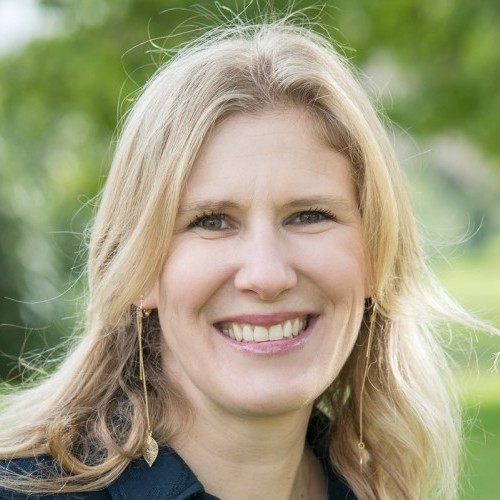
Carolyn Daher MPH
Co-ordinator, Urban Planning, Environment and Health Initiative, Barcelona Institute for Global Health, Spain
Carolyn Daher is a public health specialist with over 20 years of international experience connecting research, education and implementation to build healthier communities. Carolyn has a B.A. in Environmental Studies (Brown University), Master in Public Health (Johns Hopkins Bloomberg School) and a Master in Psychosocial Intervention (University of Barcelona). Her work centers on how to generate greater impact in policy and society using scientific evidence, and ensure evidence-based practices in the creation and implementation of projects to promote health, especially in urban contexts. She currently coordinates ISGlobal’s Urban Planning, Health and Environment Initiative.
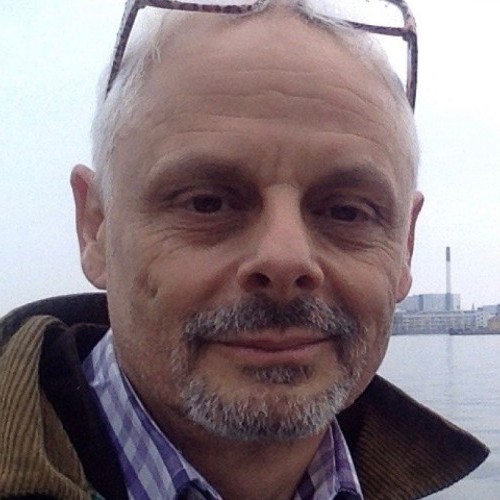
Marcus Grant
Editor-in-chief. Cities & Health, UK
Marcus is editor-in-chief of the Cities & Health journal.
Marcus is former associate professor and deputy director of the WHO Collaborating Centre for Healthy Urban Environments at the University of the West of England, where he worked for some 20 years.
His mission is to integrate the disparate scales of healthy urban places, linking work, neighbourhoods and communities with city policy to regional planning, and national and international initiatives.
See LinkedIn for his full CV details.
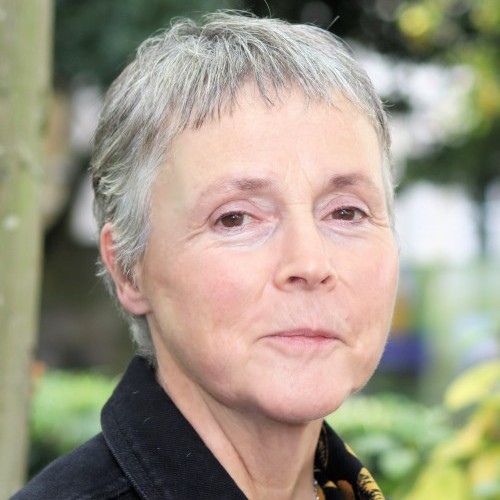
Rhiannon Corcoran PhD
Professor of Psychology and Public Mental Health, University of Liverpool; Fellow, Centre for Urban Design and Mental Health, UK
Rhiannon’s research focuses on psychological, social and environmental mechanisms and determinants of mental distress and wellbeing. In particular, she is interested in social cognition and on how our living environment affects our ability to feel good and function well. As an applied social scientist, Rhiannon’s mission is to put research findings into practice. She does this by combining her work at the university with herwork as a co-director of Prosocial Place , a social enterprise that specialises in putting wellbeing and mental health at the heart of place-making and regeneration. In this capacity Rhiannon has worked on several national programmes such as the NHS Healthy New Towns Initiative and with DLUHC, DCMS and Design Council.
Rhiannon’s work in social cognition involves both 'clinical' and non-clinical groups of people where she has a particular interest in the psychosis spectrum, common mental distress and the autistic spectrum.
Rhiannon uses diverse methods within quantitative and qualitative approaches including real world and realistic evaluation, quasi-experimental and neuroscientific techniques.

Shira de Bourbon Parme
Urban wellbeing and innovation lead, Ramboll, UK
Shira de Bourbon Parme, DPhil, MSc, is an urban development planner and social anthropologist dedicated to advancing place-based spatial and social sustainability. In her role within Ramboll's Regenerative Cities Team, she partners with public and private sector stakeholders to develop and deliver integrated urban strategies that foster liveable and resilient environments, nurturing human and planetary health. Her work is grounded in vulnerability-sensitive approaches to drive health, social and spatial equity.
Shira holds a doctorate from the Future of Cities programme at the University of Oxford. She serves on the Advisory Board for the University of Birmingham’s Centre for Urban Wellbeing. She has delivered annual lectures for University College London’s MSc Health in Urban Development and the University of Cambridge’s Future of Roads Programme. Notably, Shira led the development of Neighbourhood Futures, a framework for climate resilience and health equity, in collaboration with Impact on Urban Health, and conducts ongoing research on urban planning and social infrastructure for ageing populations.

Mark Drane PhD
Director, Urban Habitats, United Kingdom
Mark is a researcher and practitioner with 20 years’ experience. He works across the fields of public health, urbanism, and architecture. His work addresses wider determinants of health, focused on promoting holistic wellbeing, and reducing health inequalities.
Mark has recently completed his doctoral research, Healthy Streetlife, undertaken during the Covid-19 pandemic observing the impact of the street environment on health. This research has been based at the WHO Collaborating Centre for Healthy Urban Environments, UWE Bristol.
As the founder and director of Urban Habitats Mark’s practice work encompasses population health across a spectrum of topics and methods. This includes working at a whole country scale with the WHO Collaborating Centre on Investment for Health and Wellbeing at Public Health Wales. He works at all urban scales including community co-design and addressing community agency as a determinant of health.
With a background in practice and industry Mark has been involved in the delivery of over £2 billion of capital investment in social infrastructure. Mark has experience with a broad range of stakeholders across the urban health ecosystem from many different systems and sectors.
Happiest whilst on a bicycle Mark is an optimistic gardener and lives in Cardiff, Wales with his family.

Giselle Sebag, MPH, LEED AP, Fitwel Ambassador
Executive director, International Society for Urban Health, USA
Giselle Sebag (MPH, LEED AP) is executive director of the International Society for Urban Health. She is a globally recognised urban health leader with 15 years of experience advising governments, multilaterals, NGOs and private-sector companies to develop sustainable, inclusive and resilient cities that promote and enhance resident health.
Prior to joining the International Society for Urban Health, Giselle was a public sector consultant at Bloomberg Associates, where she advised cities developing evidence-based urban health solutions with the aim of improving the lives of the greatest number of citizens. Previously, Giselle was vice-president of programs at the Center for Active Design (CfAD), where she oversaw the development, planning and implementation of innovative programs such as Fitwel, a leading certification system committed to building health for all, developed in partnership with the US Centers for Disease Control and Prevention (CDC) to implement environmental design and operational changes that support healthier workplaces, homes and communities. Prior to that, Giselle was head of the built environment portfolio at the Clinton Global Initiative (CGI), where she selected, managed key relationships, and advised Fortune 500 companies, governments, multilaterals, philanthropic foundations and NGOs in strategic planning, partnership building, and evaluation of their healthy cities ‘Commitments to Action.’
Giselle holds a Master's of Public Health from the Harvard T.H. Chan School of Public Health, joint M.Sc. degrees in international cooperation and urban development from the Technische Universität Darmstadt, and international cooperation in sustainable emergency architecture from the Universitat Internacional de Catalunya, and bachelor's degrees in architecture and government from the University of Texas at Austin’s School of Architecture (UTSOA) and College of Liberal Arts.

Blake Jackson AIA, LEED Fellow, WELL Faculty, CPHC
Director, sustainability, NORR, USA
Blake Jackson is an architect working at the nexus of sustainability, wellness, resiliency, and equity, who serves as the global Director, Sustainability for NORR. NORR is an 800-person integrated architecture, interiors, planning and engineering company, headquartered in Toronto, with 14 locations in the US, UK, UAE, and Canada. Blake has 23 years’ experience in the AEC industry, holding a Bachelor of Architecture from Kennesaw State University in Marietta, Georgia and a Master of Architecture in Sustainable Environmental Design from the Architectural Association Graduate School in London. Blake is a prolific author, speaker, and educator on topics affecting the built environment. He currently serves on the Advisory Board for the University of Massachusetts Dartmouth’s Interior Design Program, is on the AIA National 2030 Working Group, and he is a former Vice President, Advocacy for the Boston Society of Architects. Blake was recognized in 2015 by BD+C Magazine as a top “40 Under 40” AEC professional, he was named a LEED Fellow by the USGBC in 2021, and he is a 2024 recipient of the AIA Young Architect Award.

Magali Thomson
Project lead for placemaking, Great Ormond Street Hospital, UK
Magali Thomson is an architect working at Great Ormond Street Hospital, one of the world’s leading children’s hospitals. Here, she is setting out vision for a climate-resilient, healthy and child-friendly street, a healthy hospital street. She is particularly interested in preventive approaches to health and the impact our environment has on children’s health outcomes. She recently completed an Executive MSc in Cities at the London School of Economics, graduating with a Distinction. Her thesis focused on how children and their carers are impacted by air quality in Lewisham. She is also a built environment expert at the Design Council, a healthcare expert at the NLA and has positions on Design Review panels in Design South East, Southwark and Brighton. She previously led a successful education team to deliver award-winning schools at Marks Barfield Architects, where she was a director.
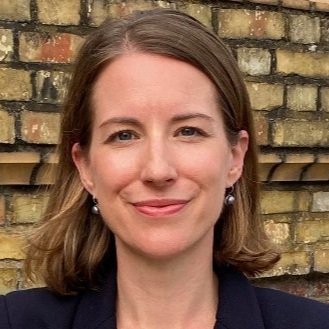
Helen Pineo
Research Associate Professor, University of Washington, United States
Helen Pineo is an urban planner, Research Associate Professor in the Department of Urban Design and Planning at the University of Washington and Honorary Associate Professor at University College London. Her research focuses on how development, regeneration and urban policy can support health and sustainability. She contributes to the evidence base about why and how to do healthy urbanism by using transdisciplinary approaches and amplifying the needs of under-represented communities and the planet.

Caroline Paradise PhD
Head of design research, Atkins, UK
Caroline Paradise is a Technical Director, and Head of Research & Innovation within the Building Design practice at Atkins. She is a qualified Architect with a PhD in Architecture and 18yrs experience in applied research within the built environment industry.
She currently leads a multi-disciplinary Research & Innovation team focusing on themes including Human Experience, Technology Advancement and the Creative Process. Her role supports a research driven design approach to provide innovative solutions across a range of sectors, including Education, Residential and Transportation.
Since the beginning of her career, Caroline has been passionate about the importance of design to support the health and wellbeing of all building users. Caroline led the development of Atkins’ HCD toolkit, an innovative design service supported by a suite of digital tools which puts user experience and wellbeing at the heart of design decision making.

Rosalie Callway PhD
Projects and policy manager, Town and Country Planning Association (TCPA), UK
Dr Rosalie Callway joined the TCPA from the University of Bristol, where she was previously Senior Research Associate working on the ‘Tackling the Root Causes Upstream of Unhealthy Urban Development’ (TRUUD) project.
She brings over 20 years experience promoting different aspects of sustainability, and a wealth of policy knowledge and expertise. Rosalie leads our Healthy Homes Campaign.

Jeri Brittin PhD
Director of research, HDR, USA
Director of Social and Behavioral Sciences at HDR, Dr. Jeri Brittin leads a transdisciplinary team of social, behavioral, and health scientists whose work informs optimal strategies, planning, organizational and design decision-making. With her background in design, doctoral training in social and behavioral health, and experience leading multi-disciplinary teams, Jeri is passionate about developing strategies, systems and environments that promote positive and equitable outcomes. Her work focuses on wellness and behavioral outcomes related to environmental and social determinants in buildings and campuses, neighborhoods and cities, and organizations. Dr. Brittin maintains an active national and international research collaboration network, is a frequent speaker, has published numerous refereed articles, and serves on several national committees focused on design and health.

Harry Knibb
Development director, Oxford Properties; director, Academy of Urbanism, UK
A chartered town planner and developer, Harry specialises in pre-planning / strategic sustainability, wellbeing, and energy work.
His interests lie in social sustainability, wellbeing and loneliness. He has won awards for research exploring the linkages between pro-environmental behaviour and happiness. He believes there is an opportunity to employ robust social science methods to better understand the true impact of development. He is also a WELL AP.

Jose Siri PhD, MPH
Epidemiologist, global, urban and planetary health specialist, USA
Over a career in research and policy, José Siri has developed and applied systems approaches to urban and planetary health, focusing on leveraging science for healthy development, devising simple systems tools to catalyse better decision-making, and improving understanding of complex challenges. His experience, which spans five continents, includes time at the International Institute for Applied Systems Analysis, the United Nations University International Institute for Global Health, and the Wellcome Trust, and extensive engagement with researchers, practitioners, and policymakers. He has published more than 30 peer-reviewed articles and book chapters, along with policy briefs and commentaries in publications ranging from the Wall Street Journal to the Global Sustainable Development Report. He currently consults for the World Bank and the World Health Organization and holds advisory roles with the Inter-American Institute for Global Change Research, Future Earth, CDP, and a variety of urban and planetary health research projects. His work has touched on urban studies, climate and health, sustainable development, systems thinking, transdisciplinarity, epidemiology, ecology, infectious disease, public health, and malaria control.




